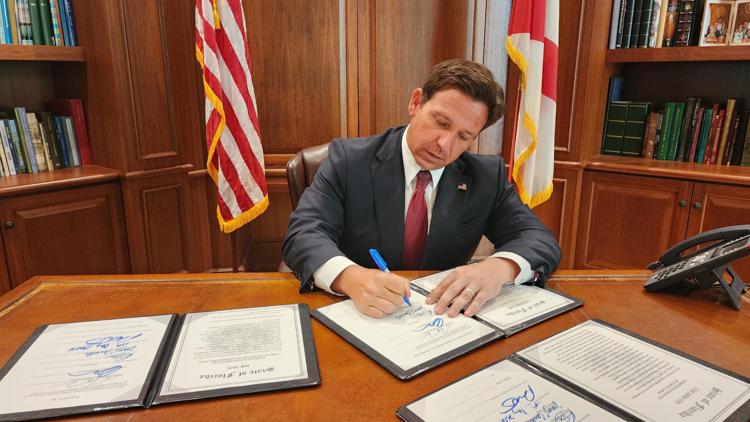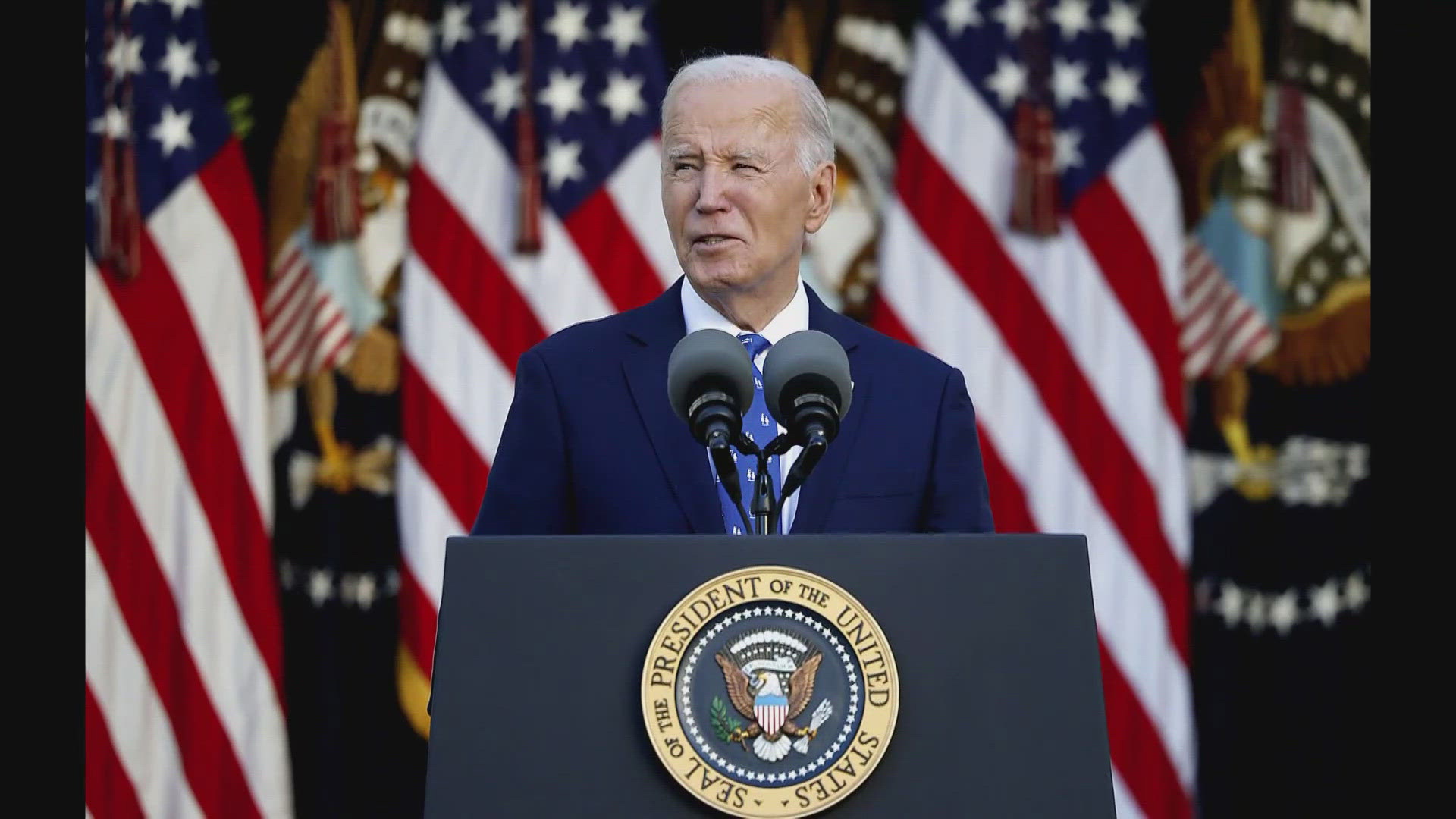TAMPA, Fla. — There's only one more month until 2025, and some Florida laws are set to go into effect as the ball drops.
Nine new bills that were passed by state legislators during the 2024 session are about to become law. Here's what they are and what they will do:
This law will require social media platforms to prohibit minors under 14 from creating an account. Companies will also terminate any existing accounts held by someone younger than 14.
For minors who are 14 or 15, parental consent will be needed to make an account. Social media is defined as forms of electronic communication to share information, ideas and other content with "addictive designs" such as "infinite scroll" that can cause people to spend excessive time on the platform.
House Bill 135 is designed to address issues with voter registration updates at the Florida Department of Highway Safety and Motor Vehicles.
It will prohibit the party affiliation of a person updating his or her registration record from being changed unless the applicant consents in writing to a change in the party affiliation,
It prohibits the department from using a voter registration application to change the affiliation unless the applicant designates the change and provides a separate signature.
This stems from issues in the past where voters had their party affiliation unintentionally changed due to software issues, causing some to be excluded in primary elections.
Local governments will have a stricter timeline for reviewing building permits and they can request more information from applicants up to three times, giving specific deadlines.
If the government misses any deadlines, they have to reduce permit fees by 10% for every business day over the initial deadline.
The point is to make construction projects quicker and improve efficiency in the permit process.
This bipartisan bill updates laws governing how fiduciaries such as trustees and estate administrators manage and distribute assets.
The law updates definitions for terms like beneficiary and fiduciary and adds new terms to make legal responsibilities clearer. There is also updated guidance on adjusting between income and principal distribution for fiduciaries.
There will be elements of a national uniform fiduciary act to streamline administration across the state.
Senate Bill 184 makes it a first-degree misdemeanor for any person who, after receiving a warning, approaches a first responder who is engaged in "the lawful performance of a legal duty." If the person violates the warning and is within 14 feet of the responder, it is a criminal offense.
The law increases the maximum reimbursement allowances for physicians and surgical procedures to 200% of Medicare, up from 110% for a physician and 140% for surgical procedures.
It also increases the maximum fees that certain expert witnesses can charge in workers' compensation cases.
Financial institutions will be able to delay transactions or disbursements from accounts of older or vulnerable adults.
Older adults are defined as 65 and up and vulnerable adults include people 18 or older who may have physical, mental or developmental disabilities.
Financial institutions can delay if they suspect financial exploitation is occurring. Delays can last up to 15 business days with a possible extension of an additional 30 days.
Another bipartisan bill will streamline the insurance claim processes by providing clearer rules for insurers. This will also prohibit a contract between an insurer and a dentist from containing certain restrictions on payment methods. Health insurers also can't charge a fee to transmit certain fees and won't be able to deny claims included in a prior authorization.
The new law revises the regions, pools and timelines related to bond allocations to maximize the use of these bonds to finance public improvements projects and programs.



